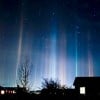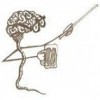Establishing space colonies in the Asteroid Belt.
Should humanity make the long term investment in establishing and maintaining industrial and technical colonies for access to resources and research?
The tentacles of capitalist exploitation have no bounds.
It isn't about capitalism, but it is about resources.
Capitalism is simply the enforced rationing of resources.
Exploitation.
In space?
Harvesting minerals in asteroids?
Destroying the environment is one thing, but you make it sound as if these "capitalists" are going to somehow...destroy space...by mining asteroids...
Rofl
Looking for reasons to complain about "the man" has no bounds.
To better illustrate this point of where I'm coming from, alloporus, a follow Hubber just asked this question of "where our population will be in another hundred years?"
Baring measure events and unsuccessful population control, with our planetary population adding another 1 billion people every 6 or 7 years, there will be 21 billion people on this planet.
Now, do we have the resources to support this population growth?
I feel safe in saying no!
So, where will we get our resources from if our planet does not have it support such growth?
Barring another Dark Ages, it's only a matter of time.
I believe so. There are various resources and I'm certain there are many who would like to get their hands on BPM 37093 aka "Lucy," a 10 billion trillion trillion carat diamond star amongst many other things.
Before any joint civilization task to build colonies elsewhere, it would be best if we, as individual humans, and as a collective, first reach peaceful living.
Any other thoughts are absurd.If it is the objective of the wealthier to establish space colonies, now I understand why it doesn't bother them to TRASH the earth. Our space extension and expansion is at people's disadvantages. Does it mean that the earth will be the guinea pig for whatever kind of experience, once livable habitations will be built?
It isn't about trashing the earth either.
If we can find viable resources, we can give the Earth a much needed brake. We would not need to continue to ruin mountains,forests and rivers just to get at the dwindling mental resources that are left.
But if humanity waits until ALL the resources on this planet are used up, then we may not be able mount such an effort, we will be too busy trying to survive or fighting resource wars.It is our greed that is diminishing this planet of its resources.
And yet this is not a good argument against colonization.
I could say that our greed is motivated by the needs of a technologically growing civilization based on mass marketing principles, that the rich gets richer and the poor gets poorer, and be correct.
If you want to eliminate greed, you will have to modify human nature and the global capitalist system, (which probably would be a good thing, greed unchecked will eventually hurt humanity).
But starting to retrieve resources from the asteroid belt would at least give us an environmental opportunity to take our industrialization off planet.Colonization has its pros and cons, but I, and many others have become quite comfortable with the results of its pros, which are indeed quite good. I don't know, I suppose since the other resource couldn't be life sustaining, we wouldn't essentially be hurting anything, I suppose, but we need to deal with what we've got going on right now and this planet and finding a way to survive without hurting Mother Nature so.
Believe me, I know how you feel.
It is in fact why I posted this forum.
We are running out resources for our technology and culture, colonization for resources at a location that is relatively close to Earth is a good long term solution for a lot of humanity's problems.
It is a choice of being the 'ant' or the 'grass hopper':
To think and act on our long term resource problems, or do nothing and pay for the consequences later.
The thing is, later could be a lot sooner than you think....
After centuries of exploiting our planet; I guess it is inevitable that we will start to extend the habit to other planets.
Must be human beings just acting like yourselves
 .
.Well....
Strictly speaking, we are NOT talking about getting to other planets on this forum, but the colonization of our solar system's asteroid belt for resources the Earth dearly needs....
Secondly, wouldn't be better than the continued exploitation of our planet? We can give nature a rest, heck, if humanity colonize and industrialize the asteroid belt well enough nature can go on permanent retirement.
Colonization within our solar system for resources would slow or stop our exploitation of Earth's resources.Is your definition of nature exclusively that which exists on this planet? Do you remember why Agent Smith hated our species so in the Matrix?
I do.
From Agent Smith's point of view, humans are viral and destructive, and should be controlled by machines.
But are we 'viral?'
A species that requires a continued influx of resources that uses up every metal and ore, every rare earth until there is nothing left, could be called 'viral'.
A species that takes this type of industrialization off planet to ensure its supply of raw materials for civilization I would call 'intelligent.'
And as for nature, there is nothing living in the asteroid belt for us to hurt, while continuing to destroy mountains, rivers, ground waters, and other parts of nature on this planet does destroy nature.Surely you are not naive enough to think we will exploit the asteroid belt until such times as it becomes economically necessary?
No, I'm not naive.
But if you are arguing economics, OK.
Which of these missions would have the greatest economic returns for the planet?
1. A mission to Mars, (manned or unmanned).
2. A mission to the moon.
3. A mission to the Asteroid Belt to bring to a near earth orbit a have a mile asteroid full of rare earths and precious metals for use for new technologies and resource management.
Even if you discounted the 100s of billions in profit to the global economy, there is one thing we as a species would gain form such a mission versus either a mission to Mars or the moon.
Experience.
The know how learned would be greater than either mission.Experience over economics? Good luck with that. There is no profit to be had. Our economic system relies on rationing resources. Precious metals are only precious because they are in short supply.

Well, I was talking about the long term value for the planet and our civilization, not the special interests or the 1%.

*sigh*
"I'd like to share a revelation I've had during my time here. It came to me when I tried to classify your species. I realized that you're not actually mammals. Every mammal on this planet instinctively develops a natural equilibrium with their surrounding environment, but you humans do not. You move to an area, and you multiply, and you multiply, until every natural resource is consumed. The only way you can survive is to spread to another area. There is another organism on this planet that follows the same pattern. Do you know what it is? A virus. Human beings are a disease, a cancer of this planet. You are a plague, and we … are the cure." -Agent Smith
Now, I do think him a bit dramatic. And I'm much less cynical than he, and as such, I don't see the human race in quite as negative a light. But it is the "everything is a tool for our use and happiness/delight/etc" attitude that has led us here. And so, he makes a good, good point, in certain respects. I think the Native Americans, Aborigines, etc, got it right on a number of things. Even the Amish get it right in some ways.So, are you saying that our civilization, our species, should be like the Amish or Native Americans?
I would love to live a simpler life of meditation and writing poetry and science fiction, and perhaps I'll have that life.
But can 7 billion humans live like that?
And would you make all 7 billion people like the Amish?
Would anyone want to have global war to change our culture to that of Native Americans?
And even if you could convince all 7 billion of us to make that change peacefully, there is our growing population that will be more dependent on technology and resources....
My point is, every living thing must leave its cradle of life.
And it is our turn.That's cool my friend.
And you have some valid points too.
I'm used to taking the odd ball position, it suits me. ;-)
I decided to go ahead and respond to your points. I'm an argumentative person, but not necessarily just for the sake of arguing. Eh, it's etched into my personality. Anyway...
"But can 7 billion humans live like that?"
I think the more important question is would there be 7 billion people living on this planet if we did live that way? I'm not saying that all the people alive right now aren't valuable human beings. They are. The problem is there's just TOO MANY of us. We have become spoiled by the technological advances that we hold dear. We cling to things too much. (Attachment is a cause of suffering, great Buddhist wisdom, and quite true) We're so obsessed with "spreading our seed," but we don't have enough food to feed and take care of everyone that's already here.
People take the command to "be fruitful and multiply" to the upmost power, and often don't know when to stop.
(You ever watch the show "19 kids and counting?" That lady's womb is part of the problem. LoL, ok, that was mean. But seriously. 19 children.)
We have plenty of food and resources on this planet, but wayyy too many people to provide for.
"Would anyone want to have global war to change our culture to that of Native Americans?"
No one would want to, no. That's a small part of the problem. I'm not saying we should live exactly as they did, but studying some of their customs, and others who live(d) holistically and modestly in a similar manner, would teach us how to take better care of our precious planet.
"And even if you could convince all 7 billion of us to make that change peacefully, there is our growing population that will be more dependent on technology and resources.... "
Again, I'm not asking for something so dramatic. But people have a tendency to cling heavily onto the idea of being alive itself (instead of what you do because you're alive and while you're alive) and also too attached to things. And if we would stop selfishly clinging onto the lives of those who are ready to leave, but can't because they care too much about the people holding on to their existence for dear life. To what end and whose benefit? And to those who want to live, well, the technology's there... That's why I said it's pro/con.
"My point is, every living thing must leave its cradle of life.
And it is our turn."
But why does us leaving our cradle = this world's demise?
We are intelligent, and yet we leave paths of destruction behind us. Our level of consciousness and what we've done with it has ACTUALLY affected this planet and the very air we breathe! That is MIND-BLOWING. For me, at least.
In our attempt to defy nature we are destroying it because we don't know went to say "enough."Humans have a way of making themselves distinct of Nature. How is this? How have we sentient beings overlooked that we are here, right in the midst of Nature, and here in the thick of the forest with a nature of our own? When people hear the words "granola," "grains," "pinecone," "organic," "green," "fiber," and/or especially "hiking," they immediately think of Nature. What about words and phrases like, "body-odor," "temper," DECAY.
We humans are so much like nature that we do with it what it allows. We allow volcanoes to explode, Nature let's us behave the same way, yet, both of us are equally as inept to do anything but to destroy what is, too, destroying us. Nature, my dear friends, is not adorned with an ecology to let us live forever, ergo - we mirror her fine visage! We, too, are nature. And it is something supernatural that wants to get us over our own, our verisimilitude to "Nature." It comes as no surprise to me that long ago certain people wrote books that tell us that the world will come to an end, that is, knowing the NATURE of mankind: nihilism proper. No surprise, that we would think ourselves to be above nature. We do the same to one another... it's called human nature. It is the condition we find ourselves in, and we are in a time that, quite naturally, those who deny the supernatural, behave all the more naturally... to what end, I wonder? You can deny your nature---- WE, can deny our nature and our part in it... We can also escape it, but by no human, that is to say, natural effort.Is it in our nature to want to colonize and industrialize the asteroid belt?
I would think this is so.It is not human nature that would drive it. It would be imagination. It wouldn't be in human nature to do it. Unless, you want to talk about how much stupidity humankind collectively has?
Imagine a nature that is without a sense of what it is doing. I look at artists and designers, for instance. They have a way of repeating certain forms, and we refer to this as their "mark," or their "style." More or less, their essence in their work. Designers hate to unnecessarily reinvent the wheel...they stick with what works. For instance, the man who decided a house requires an endoskeleton probably took the idea from nature. Like humans, and many other forms, the framework is more of less the same, but like houses and other structures, they alter the skin, or, the exterior, while the interiority is based on the same principles. Imagination is part of a very psychoactive nature, and it is a shared, common thought now that consciousness projects itself through "mind." But the skeletons of many things in nature that are unrelated in terms of their relative species, are so similar, that it begs the question as to whether something imagined it, and disseminated its design consistencies in myriad locations due to their functionality. Yes, we behave quite ignorantly, but designers that are human, and nature don't do something as stupid as reinvent the wheel. Try as they may, I feel it would lead to frustrating ends. My spine, a snake's spine, a frog's, whale etc....fish, birds. How am I evolutionarily related to these things? Why would an unconscious, unthinking universe reproduce such consistencies, that is, unless it is conscious? Imagine that, a nature that is not without mind, sentience...thought about what we are. Human nature is derivative of a divine intelligence, nature is its design, we are part of nature... Stupidity is actually just... a point of view. But if we view this all from the Asteroid Belt, we'd just be a great deal further from where we need to be. Nature won't allow that to happen. But we will try to reinvent home... We simply don't have the technology to leave this one behind, even if we do have a framework that differs from life on the ground.
Ok i think going to an asteroid is way too dangerous they are clockin into each other if you put something on one it would change the trijectory and guarantee a collision---- Go to mars first...
While the "escape Earth to help it" thing is cool... The asteroid belt is pretty empty... The largest asteroid, a mini-planet, Ceres has most of the resources and the rest are spread across an area millions of miles in diameter. If you went through the asteroid belt, you probably wouldn't see a single asteroid, it would look empty.
I do not want to escape Earth, just gradually bring in resources from mining the asteroids, we could spare ourselves some environmental damage. Besides, for our civilization to continue, we are going to need more resources, especially if they are exotic.
We either find ways to get resources off of the planet, figure out how to colonize elsewhere and spread out, or we wipe ourselves out here, either through over population, escaped technology (man-made viruses, bacteria, chemicals, technology gone awry, whatever), or climate change (our fault or natural processes, don't really matter if we all die).
Furthermore, our sun is slated to die in another 3 to 5 billion years. Yes, that's a long time, but for those of you who think we should all put on a pair of deerskin underpants and sing Kumbaya around the campfire for the rest of eternity, well, even that eternity is going to end. You may be fine with that and call it "our time to die," but, well, that's your opinion.
As for the Matrix thing, and humans being like viruses, it's true. We are. We are the locusts of mammalia. We may be able to evolve past that eventually, but for now, that is who we are. You are free to hate yourself for it as a member of the species, but I for one don't apologize for reality. It simply is. While we work on our greed and selfishness, I'm all for getting a foothold on other resources so we can feed all the baby locusts we're going to keep making until someone imposes mandatory sterility and licensing of birth rights, etc. Which, by the way, IS coming, if we don't get off this lone little world of ours.Thanks, I was beginning to think I was being reasonable on this forum. It is a sure thing that we will run out of resources, especially exotic materials, if we do nothing, versus getting to the nearest source of resources off planet.
And looking at some of the responses I've seen on this forum, it is best we as a species to start thinking about the asteroid belt for mining and colonization.Well, we need to do something. For me it's less about exotic materials or even precious resources than simple long-term survival. We have to get to work on the technology or we're toast. History has proven it:
440 million years ago, a massive meteorite smashed into our planet and wiped out ninety percent of life on Earth, and that marked the end of the Ordovician Period. 370 million years ago another one hit and killed another eighty percent, ending the Devonian Period. Just at 125 million years later, a third stellar colossus came and obliterated ninety-six percent of those species whose predecessors somehow managed to survive the first two mega-impacts. That collision is what paleontologists use to mark the boundary between the Paleozoic Era and the Mesozoic Era. See a pattern forming here? There were two more species-annihilating impacts of note, one at 205 million years ago, approximately ending the Triassic Period, and another, 65 million years ago, which ended the Cretaceous period and brought about a mass extinction which included the dinosaurs.
If you do a little math work here, you'll see that the Earth gets hit roughly every 40 to 60 million years on average. If you notice the last impact was 65 million years ago, you'll quickly realize we're actually 5 million years OVERDUE for an impact on the generous side of that 40 to 60 million thing.
Honestly, I realize I'm ranting a little now, but it drives me nuts when I see people saying we should cut funding to the space program and the related sciences. It's like... suicidal thinking or something.I find your logic very reasonable.
If we knew for a fact there was an meteor four miles in length due to hit us in a year that could wipe us out, we do not have the resources or infrastructure to save ourselves. (And no, I do not think prayer would be an appropriate response to the problem! If I were God, I'd think that if humanity could not save itself, then I'd think you are not worth saving, no matter how much you'd prayed to Me).
What I'd like know is why any part of humanity does not think this lacking in space capabilities, or are OK with our levels or access to resources.It boggles the mind, doesn't it?
It's like they're standing on the tracks; there's a train coming; but, you know, I mean, sure, we could move, but, well, I don't really think it's that big of a deal... I mean, look how far away that thing is anyway... I think I'll just face the other way and pretend that horn it's blowing is a really bad, one-note song--besides look at this new app I got for my iPhone.Thanks for the laughs, that is funny,LOL!
So, how do we wake our fellow humans up?I don't think we will convince anyone of anything. Most people are more concerned with right now. I can't really blame them. It's the age old difference between the real and the ideal, the immediate and the possible.
I think moneyed visionaries will, given time, do it themselves and take their genes to the stars and leave the rest of us behind. Maybe that's best anyway. Humanity out in the universe would do better to have left behind it's head-burying ostrich traits anyway. Perhaps that is a perfect example of evolution at work. The forward looking folks carry on, the dumb ones die when the meteor hits.Again LOL! I do appreciate minds like my own!
I hear that's a bad neighborhood with meteors, rocks, snowballs and deceased satellites flying through windows. Besides, when the sun evolves into a red giant as it threatened, we'd become a cinder quicker than you can say "Alpha Centuri." A good thought though.
I grew up in Detroit, so I understand bad neighborhoods. Bad or not, we should utilize what we have to improve any neighborhood we live in or move to, the asteroid belt is no different, except that it is 10s of millions of miles away. The thing is, would you rather that humanity waits until we can no longer mine materials planet side, or spend the next 20 years securing those materials where they are plentiful enough to last for the life of our species?
Seriously, what do you think?
Related Discussions
- 100
Why do you think climate change is difficult to deal with
by Liwayway Memije-Cruz 10 years ago
Almost everyone is already alarmed by the impacts of climate change. Several initiatives by scientists, climatologists, educators, researchers and environmental advocates on the issue of climate change are so many and they are on the rise. In your own respective fields or courses, how do you think...
- 30
Do you think that living in moon by 2050 is a far fetched dream.
by syras mamun 16 years ago
The way world population is growing, it won't take much longerto cross 10 billions and its already creating a lots of problemlike deforestation,food problems,green house effects,climate changeetc.Moreover,there are threats of asteroids or comets coming towards planet Earth,this type of incidents...
- 91
We know less about our oceans than we do about space. Should do more to explore
by AAZ 11 years ago
We know less about our oceans than we do about space. Should do more to explore our own planet?Should we divert funding from the space program to do this?
- 13
Our Earth is drowning into the sea of Darkness, NO WISDOM
by Dishant Varshney 8 years ago
We should think how to alleviate the ramifications of our atrocious acts. Acts which made the hole in the ozone layer over the Antarctica, this hole permits UV rays to melt the ice glaciers resulting in floods and hurricanes (UV rays are also harmful for us, as these rays lead to skin cancer). Acts...
- 2
What are the seven biggest scientific threats to humanity and planet earth?
by lbtrader 16 years ago
What are the seven biggest scientific threats to humanity and planet earth?
- 56
10,000 Years After People
by Amie Warren 15 years ago
I don't have a religion, but I am a pantheist. The reason I chose pantheism is because it isn't a religion, although you can make it one if you wish. Pantheists can even be Christian. I look around me and see nature as the only power. Everything we are, everything we build, everything we destroy,...





















